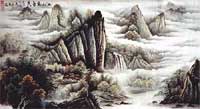|
|
||
|
Help | Search this Website | About this Website | Essays | Forums | CantoDict |
||
| 上 - Natural Objects 1 |
Natural Objects (2) |
Dates 1 - 下 |

|
| volcano | 火山 | fo2 saan1 (for sarn) |
sky | 天空 | tin1 hung1 (teen hoong ) |
| space/ universe |
太空 | taai3 hung1 (ty hoong ) |
star | 星星 | sing1 sing1 |
| sun | 太陽 | taai3 joeng4 (ty yeung) |
moon | 月亮 | jyut6 loeng6 (yoot lerng) |
| snowflake | 雪花 | syut3 faa1 (syoot far) |
tree | 樹 | syu6 (syoo) |
|